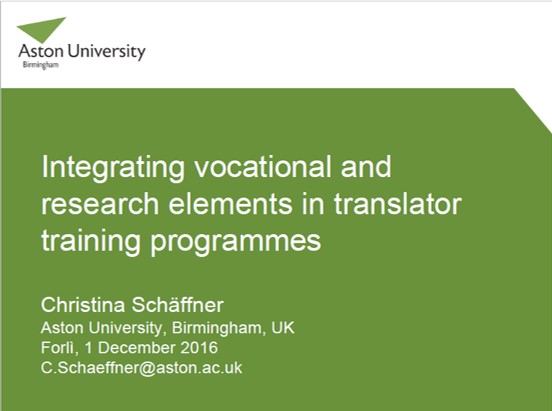In her talk “Integrating vocational and research elements in translator training programmes“, Christina Schäffner gave us a realistic picture of the job of translation, including how professional translators are trained, in particular at Aston University, and what the market asks them. Students and universities are facing enormous challenges, since becoming and training professional translators seems to be more of a dream than a reality. The market is extremely unregulated and is rapidly changing, while quality remains a top priority.
A good translator needs to acquire an interrelated “wheel” of skills – i.e. language competence, intercultural competence, information mining competence, technological and thematic competence. Developing and mastering such a broad range of skills means much more of being an “employable” translator. Fully competent translators are not just practitioners in the translation industry, as some of the MA dissertation carried out at Aston University clearly prove it. Examples include an investigation into whether or not a translator’s mood affects the quality of a translation, a case study on translation and censorship of sexual discourse under Franco´s dictatorship in Spain, and a comparison of Polish translations of ‘Alice in Wonderland’.
Curiosity and critical thinking are the strength and energy of any matured translator. In this context, universities play a key role in fostering the continued development of young translators, rather than sending them out into the world of work as fully finished professionals.
“Education is not the learning of facts, but the training of the mind to think” [Albert Einstein]
